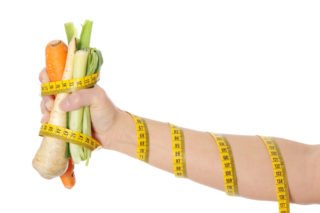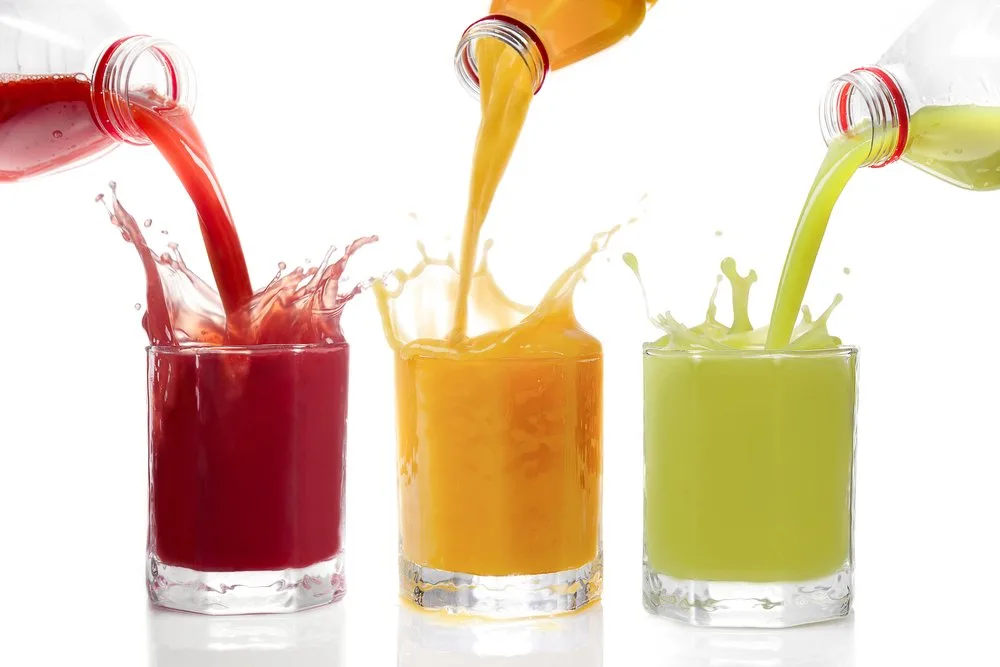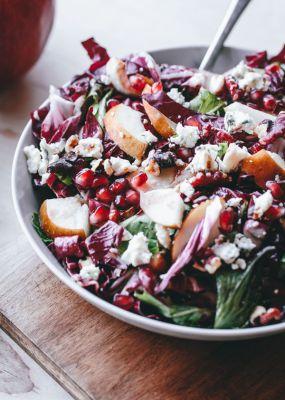For many years, a juice cleanse was considered the fastest way to lose those unwanted pounds, while it’s also the go-to method when it comes to kick-starting a new diet. Unfortunately, despite the many so-called wellness gurus who swear by these cleanses, there is very little science that backs up this practice. Moreover, while you may lose weight initially, it is bound to come back as soon as you are eating like you normally do. This is why you should actually be focusing on your day-to-day diet, not a quick fix that is going to cause more harm than good in the long run.
Here is why you should avoid a juice cleanse detox
First off, the juice cleanse has just been listed by the British Dietetic Association as one of the top diets to avoid. In 2019, dietitians in the UK (and SA alike!) are advising people to avoid detox teas, an element that is usually incorporated in a juice cleanse.
What does a detox diet entail?
![miracle drink [longevity live]](https://longevitylive.com/wp-content/uploads/2019/05/antioxidant-apples-blur-1128973-320x214.jpg)
According to Monique Piderit, a registered dietician from Nutritional Solutions, someone on a detox diet will traditionally eat very little (usually just raw foods like fruit and vegetables, and veggie juices in some variation) while they are drinking large amounts of fluids. These usually constitute mostly water or herbal teas of some sort.
“The intention of a detox diet is to ‘cleanse’ the body of toxins and ‘kick start’ your metabolism with rapid weight loss,” she says. “Although most of us find the first few days difficult, the lightness and improved energy levels that follows gives us an encouraging feeling. The problem arises a week or two later when we find ourselves slowly returning to the old eating habits as these detox regimes are not substantial to support a healthy lifestyle in the long term.”
Someone on a juice cleanse is bound to see a measure of weight loss, especially at first, because of how the person is ingesting nutrients. However, when this happens, the person is not losing fat, but water and muscle instead. This is due to the fact that when we apply severe restrictions to our daily nutrient intake – as with a juice cleanse – your body starts breaking down muscle in order to ensure the body can continue performing daily functions. This is like unknowingly using up the money in your savings and investment accounts, instead of that in your running account, because there is no income to work with.
And here’s the irony of a detox diet
The breakdown of muscle (protein) actually produces toxins which the kidneys need to work extra hard at clearing. Therefore, not only is a juice cleanse ineffective at cleansing, but it can actually cause more harm than good.
The good news is that your body is amazingly equipped to handle all toxins and already does so on a daily basis. Your liver is the #1 detox organ. Kidneys come in a close 2nd at cleansing the blood, so if you wish to detox, aim to keep these organs healthy to maximize their functioning. In order to support the continuous, daily, and natural detoxification processes in the liver, rather than live on veggie juices and starve yourself for a few days, adopt a healthy and balanced eating pattern every single day throughout your life.

This includes the following:
- Consume a wide variety of fresh vegetables and fruit daily. Sure, veggie juices can be enjoyed as part of a daily healthy eating plan and are ideal to boost your intake of fresh vegetables and fruit. However, it should be in addition to your whole veggies, not in place. (More on veggie juices below).
- Select foods which are whole and unprocessed without synthetic production, for example, snack on fresh fruit instead of a protein bar, enjoy freshly made vegetable soup instead of an instant cup of soup.
- Consume at least a glass of water for every 10kg you weigh. Add on more as needed for exercise/activity. You can include decaffeinated teas like Rooibos or herbal tea as part of your water intake (ideally without milk or sugar) or jazz up water with slices of lemon or orange, mint leaves, cucumber slices, and berries – whatever you wish. In cooler months I enjoy a cup of hot water with a good squeeze of lemon juice.
- Ensure optimal gut function by consuming high fiber foods such as whole grains (barley, quinoa, corn, rolled oats, and wild/brown rice) and legumes (beans, chickpeas, lentils).
- Few people appreciate that fat is actually metabolized in the liver, so a high-fat diet puts extra pressure on the liver, especially when the sources of fat are not the healthy kind, like saturated fat from fatty cuts of meat and chicken skin, or lots of deep-fried foods. Choose lean protein (chicken breast, fish, ostrich), cut away the fat from meat and skin off chicken, watch added fats like dressings to salads or butter to bread, and eat less fatty foods like chips, crisps, chocolate, pastries, muffins, biscuits, etc.
- Limit your intake of alcohol. Alcohol is a toxin, so watch your intake. If you currently drink, aim for no more than 1 drink per day. One drink is the same as ½ glass wine, 1 beer, or 1 tot of spirits. Aim for a few alcohol-free days a week.
- Kick the smoking habit. Smoking is associated with a huge variety of health problems other than lung cancer or raising cholesterol. Smoking also produces toxins that harm the body. If you smoke, it would be a great idea to stop. If not, try to stay away from second-hand smoke from others.
A note on veggie juices

Some people find that they really don’t eat many fruits or vegetables but drink juice, so juicing is a great way for them to get some produce in their diets and some of the nutrients that they’d otherwise likely skip. However, if you juice, don’t think you’re off the hook and don’t have to eat your fruits and veggies. A juicing machine extracts the juice from whole fruits or vegetables. The process results in nutrient-rich skin being left behind along with some valuable vitamins and minerals. Juicing also removes the pulp, which contains fibre, hence we don’t want to rely solely on veggie juices for our veggie intake. To help with this, you could add this pulp to soups in the winter, so you don’t lose out too much of the fibre.
That being said, vegetable juices are still a good way to sneak in some of your vegetables for the day. Technically, any vegetable can be used to make vegetable juice, and it is all about the creative combinations that you enjoy. All vegetables can form part of a healthy diet and especially when it comes to lowering blood pressure. Vegetables are low in salt and high in potassium and magnesium – making them the perfect trio for lowering blood pressure.
As you’ve probably picked up, many of these tips (more fruit and veg, less fat, more water, and a little alcohol) are the basis of any weight loss diet. So, if you’re following a well-balanced and healthy lifestyle, there is no need to go on strict detoxing plans. Simply prevent overloading your body with toxins in the first place.
In essence, think of the juice cleanse as you would similar “wellness” fads, such as waist trainers, Vitamin IV drips, yoni eggs, and appetite-suppressing lollipops.





![women [longevity live]](https://longevitylive.com/wp-content/uploads/2020/01/photo-of-women-walking-down-the-street-1116984-100x100.jpg)









